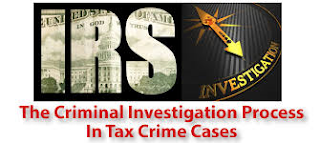
We previously posted All That You Wanted to Know About Form 706NA - Part I, where we discussed that in the area of estate tax compliance, many of us have prepared Form 706’s, the estate tax return for US citizens and domiciliaries. To be sure, this form is quite voluminous and can take a while to fill out but there are very few mysteries beyond schedule E; what percentage of an asset might be includable in an estate, the value of an annuity, what debts and expenses are deductible, the calculation of the marital deduction, and the generation-skipping tax computation. The Form 706NA, however, preparation of the tax return for the estate of the nonresident alien owning property in the United States, can present a more daunting task.
 Based on my 32 years of experience as a senior attorney at the International office of the IRS, I am revealing some of the strange and exotic problems that I came upon while auditing roughly 1,500 estate tax returns and preparing about 300 of the same in the last few years.
Based on my 32 years of experience as a senior attorney at the International office of the IRS, I am revealing some of the strange and exotic problems that I came upon while auditing roughly 1,500 estate tax returns and preparing about 300 of the same in the last few years.
After we get through the information about the decedent himself, we reach an area of the return, Part III, General Information. Most of it is pretty obvious but… The first area of major concern may be whether the decedent died intestate. Many people who have assets in several countries have country specific wills, for instance one for the United States and one for say Canada, England etc. If the decedent did die testate, one should always include the US will. If there are other wills, go through them carefully before you submit them to the IRS because they make contain data which would create questions or problems with the IRS. In the alternative, many folks have a Universal Will which covers the disposition of assets in all countries. Because of the difference of rules from country to country, such a universal will may create problems with assets passing to a surviving spouse or a charity.
 Question five relates to whether the decedent owned jointly held property in the United States. If the taxpayer plans to include 100% of the value of the asset, then this question should pose no problems. Two potential problems come to light: if the decedent came from a community property jurisdiction, is one half of the value of the asset excluded by operation of law in the foreign country? If one wishes to exclude a portion of an asset from a decedent in a non-community property jurisdiction, Section 2040 of the IRC places the onus again, of proving contribution on the surviving co-tenant. This can sometimes be a very difficult task, especially if the property is been held for a substantial number of years and many records/canceled checks etc. have been destroyed over the years.
Question five relates to whether the decedent owned jointly held property in the United States. If the taxpayer plans to include 100% of the value of the asset, then this question should pose no problems. Two potential problems come to light: if the decedent came from a community property jurisdiction, is one half of the value of the asset excluded by operation of law in the foreign country? If one wishes to exclude a portion of an asset from a decedent in a non-community property jurisdiction, Section 2040 of the IRC places the onus again, of proving contribution on the surviving co-tenant. This can sometimes be a very difficult task, especially if the property is been held for a substantial number of years and many records/canceled checks etc. have been destroyed over the years.
Prior to joining Marini & Associates, P.A., he spent 32 years as the Senior Attorney with the Internal Revenue Service (IRS), Office of Deputy Commissioner, International.
Read more at: Tax Times blog

















